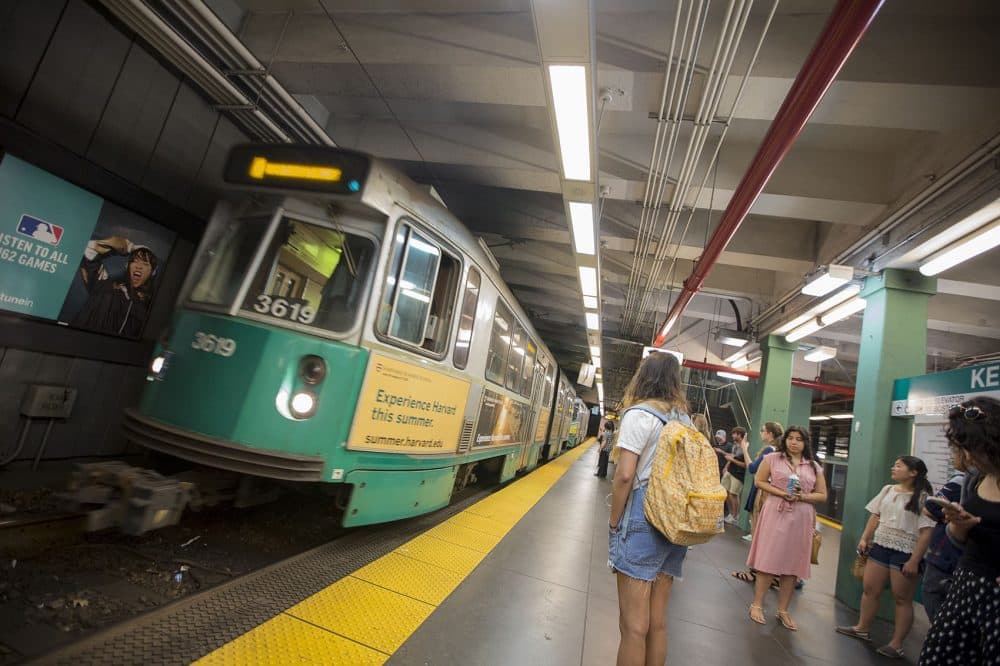Advertisement
Proposed T Fare Hikes Get Pushback From Community At Hearing

Transportation advocates across the region are saying "no" to a proposed rate hike by the MBTA.
At a hearing in Boston Wednesday night, nearly 100 people showed up to voice their opposition to the hikes, which would average 6.3 percent across nearly all of the T's services. It would mean an extra 15 cents for subway riders and an extra 10 cents for bus riders who use a Charlie card.
At the hearing were advocates for an array of causes — from environmental protection to economic justice to transit equity.
MBTA general manager Steve Poftak defended the proposed hikes as reasonable.
“We believe it is industry best practices to have modest increases at regular intervals," he said at the hearing. "It does allow us the capability to make some investments that improve service, and it also allows us to maintain the level of capital funding that we believe is necessary to make the MBTA more reliable."
But the audience wasn't having it. Brookline state Rep. Tommy Vitolo, holding up a can of Arizona iced tea, had one of the biggest applause lines of the evening.
"[The iced tea] costs $.99. It says it right on the cans. It's cost $.99 for 18 years --18 years. What the good people at Arizona ice tea figured out, is if you don’t improve the quality of the tea, you don’t raise the price of the tea."
Advocates say the MBTA needs to find sources of funding that don't put more of the burden on riders. One idea is to increase the state gas tax to pay for more investments in the T. Another is to revisit the tax structure in the state, where income taxes are 5.1 percent regardless of earnings.
Advertisement
Brendan Kearney of the group Walk Boston said policymakers need to rethink the way transit is funded rather than always resorting to fare hikes.
"This problem has been studied extensively — what is lacking is the political will," said Carney. "We encourage the MBTA to work with MassDOT and other stakeholders to find new sources of revenue to equitably invest in the 21st century transportation system we all deserve."
T officials cite a host of financial liabilities set to increase as their reason for increasing fares. But many T riders say that if fares are going up, they want to see the quality of service go up, too.
Correction: An earlier version of this post misspelled Brendan Kearney's name. The post has been updated. We regret the error.
This article was originally published on February 28, 2019.
This segment aired on February 28, 2019.
